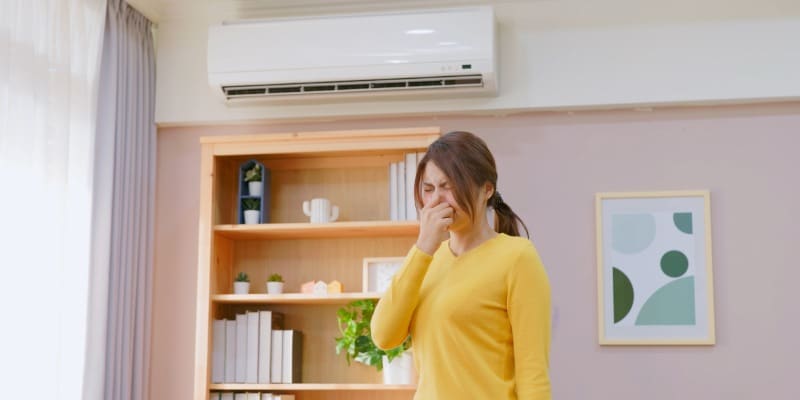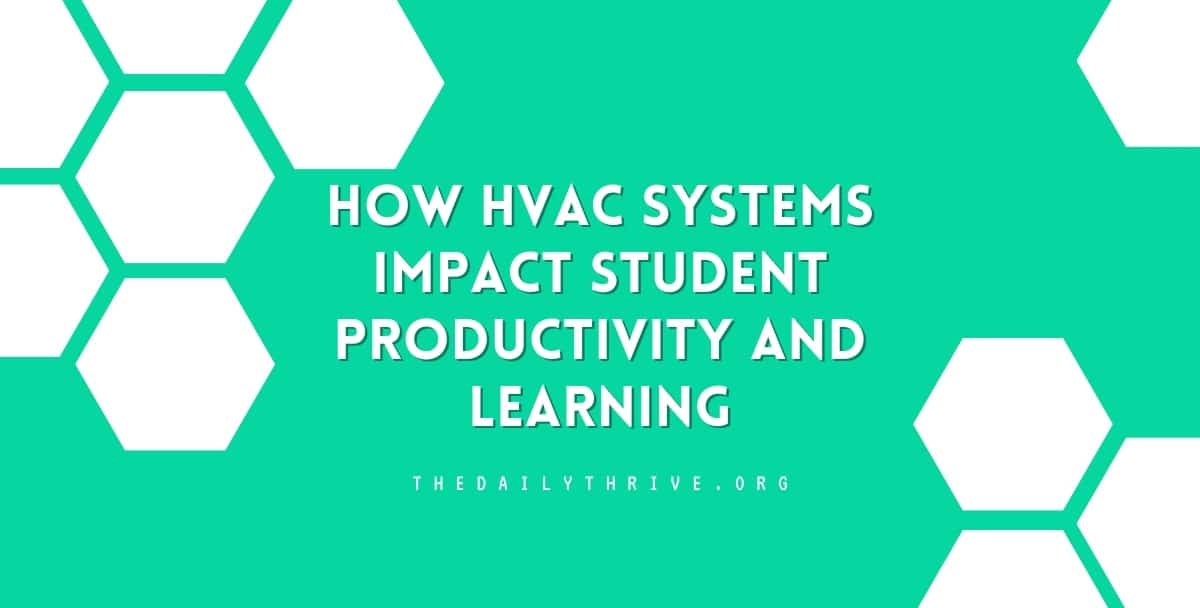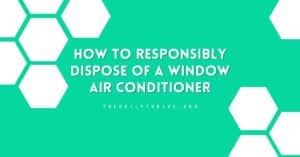HVAC (Heating, Ventilation, and Air Conditioning) systems hold a crucial role in educational settings. They control the indoor climate and contribute significantly to the overall learning experience. This post will explore the thesis that HVAC systems substantially impact student productivity and learning.
In exploring the impact of HVAC systems on student productivity and learning. This service has gained popularity among students. Just as students may choose to pay for essays to ensure high-quality work and better grades, schools and universities invest in efficient HVAC systems to create a conducive learning environment that can enhance academic performance.
Understanding HVAC Systems
HVAC stands for Heating, Ventilation, and Air Conditioning, a system that plays a vital role in maintaining a comfortable indoor environment. It’s essentially the lungs of any building, circulating fresh air and ensuring the right temperature conditions inside.
The main functions of an HVAC system are:
- Heating: To provide warmth in the cold months, HVAC systems have heaters, usually powered by natural gas or electricity. The heating component includes a furnace or heat pump to heat the air and a fan to circulate the warm air.
- Ventilation: This function replaces or exchanges air within a space to control temperature, replenish oxygen, or remove moisture, odors, smoke, dust, and other airborne bacteria.
- Air Conditioning: During the warmer months, the HVAC system cools down the building using refrigerant gases to reduce and maintain lower temperatures.
The role of HVAC systems in maintaining indoor air quality is pivotal. Proper ventilation ensures a continuous supply of fresh air, filtering out pollutants and allergens. Temperature control is equally important. An optimally heated or cooled environment contributes to the comfort of occupants, enhancing their ability to focus and be productive.

Impact of HVAC Systems on Student Health
HVAC systems in schools have a significant impact on student health. The quality of indoor air, regulated by these systems, plays a crucial role in maintaining the well-being of students. The presence of dampness and mold, which can occur due to inadequate ventilation or poorly maintained HVAC systems, increases the risk of asthma and related adverse respiratory health effects in homes by 30-50 percent.
Moreover, extreme heat conditions, which can prevail in schools without efficient HVAC systems, threaten student health. High heat exposure has been linked to serious illnesses in children, including heat exhaustion and heat stroke. Therefore, schools must ensure their HVAC systems are functioning optimally to provide a safe and healthy learning environment.
HVAC Systems and Learning Environments
The state of HVAC systems in educational institutions impacts student health and the learning environment. Research shows that temperature, humidity, and air quality inside a school facility, all controlled by HVAC systems, are linked to student health and learning.
Hot classrooms, for instance, are highly detrimental to student learning. School buildings without working HVAC systems can also pose a major public health issue.
On the other hand, improved indoor air quality, achieved through effective air filtration and ventilation strategies, can reduce absenteeism and health care costs and enhance academic success.
Thus, HVAC systems play a major role in creating a safe, comfortable, and conducive learning environment for students. Decisions about school ventilation, heating, and cooling not only have implications for the health and education of students — but they also impact societal costs, as the carbon emissions from HVAC systems currently installed in schools impose an estimated $2 billion a year in societal costs.
HVAC Systems and Student Productivity
HVAC systems have a significant impact on student productivity. The quality of indoor air regulated by these systems is not just about health; it’s also about cognitive performance. Research indicates that poor air quality can negatively affect academic performance, and conversely, a comfortable environment can lead to improved concentration and learning outcomes.
The design of an HVAC system can also influence productivity. For instance, Robert S Hicks, a college professor, says that considering the acoustics during the design phase can help reduce noise distractions, leading to increased comprehension and productivity. Furthermore, cumulative heat exposure over a school year is associated with a lower level of student learning, and the presence of classroom air conditioning can mitigate this negative effect.
The Importance of Regular HVAC Maintenance
Regular maintenance of HVAC systems in schools is crucial. These systems are responsible for keeping educators, staff, and students at a comfortable temperature and minimizing their exposure to pollutants. HVAC systems can become less efficient without regular maintenance, leading to uncomfortable temperatures and poor indoor air quality.
Furthermore, poorly maintained HVAC systems can lead to dampness and mold growth, increasing the risk of respiratory illnesses among students and staff.
Therefore, regular HVAC maintenance is not just about ensuring the longevity and efficiency of the equipment; it’s also about ensuring a safe, healthy, and productive learning environment. A heating and air conditioning specialist emphasizes the importance of good HVAC in schools and other educational environments.
Conclusion
HVAC systems play a significant role in educational settings, impacting student health, productivity, and learning. They contribute to creating comfortable and healthy learning environments, leading to improved academic performance. Therefore, schools must invest in high-quality, well-maintained HVAC systems. Not only will this enhance the learning experience, but it could also lead to better academic outcomes.






